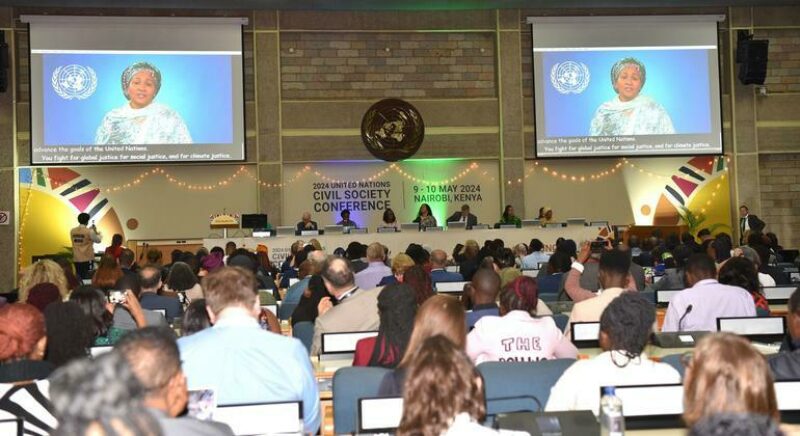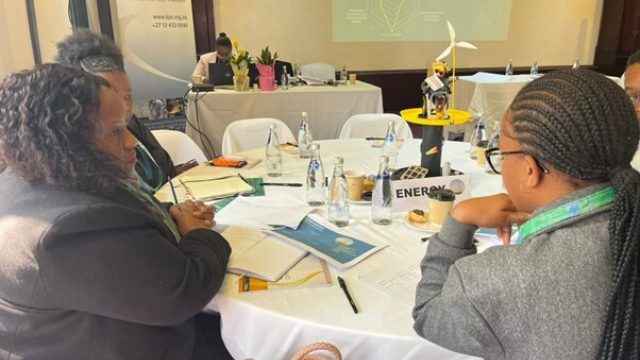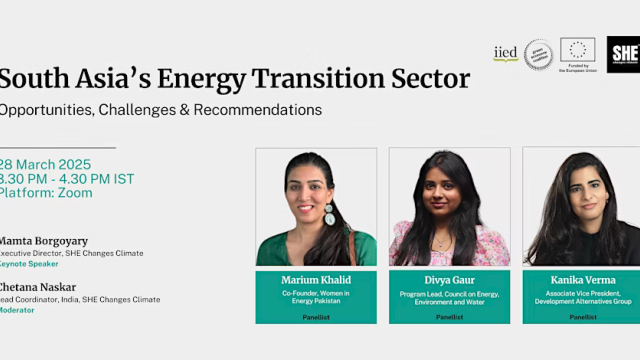The age of technocrats is over, the time for systems changers are here
Reflections on the new conditions to create change, following the UN Civil Society Conference Nairobi

Our Director of Engagement Jean McLean shares her top five takeaways from the 2024 UN Civil Society Conference in Nairobi, Kenya.
1. More configurations for change
The advent of increasing multipolarity and more regionalisation in geopolitics is opening up change opportunities for social justice campaigners.
In a more fluid system, change has multiple shapes, and traits such as flexibility, adaptability, inclusivity, landscape knowledge are highly prized. Organisations that can horizon scan, regularly test assumptions, a willingness to work in coalitions, a commitment to goals but creativity of means should be the order of this time.
2. Technocrats plus
The role of technocrats may not be over but it is definitely no longer sufficient in the way it once was to create change. Specific expertise and knowledge is still needed to unlock barriers to change but this expertise needs to be complemented by other features e.g. constituencies building demand for these changes, the demonstrable failure and unfairness of the current system and a compelling narratives for change.
In a more competitive ecosystem of ideas it is not enough to be correct, you need a power base and complementary environmental dynamics.
3. Ask not, "insider or outsider," but what you can do for allies
Radical flanks and mainstream masses are both required to create change. Greater movement generosity needs to be the order of the day, with intentionality around sharing organisational assets such as access, intelligence and mobilisation capacity. Instead of worrying about who we let in and who we keep out we should spend that energy creating new ways to work together.
As a coalition, time is well spent working out who should speak and when. Is it for us to propose a recommendation or one of our members? How important is this issue to them and to us, what enables us to have maximum manoeuvrability? How can we both equal and different?
Critically how and under what conditions will we provide political cover. If we want decision makers to take big and bold moves, we must create these conditions for change. Understanding when we have consensus around a policy, when an offer is “realistic” and improves on where we are? And understanding who can’t agree and why they will continue to strive for a more principled outcome. We need to know, respect and understand our partners in change.
4. All the feels
In this dynamic environment with multiple change pathways, emotional intelligence, political acumen and the ability to weave networks will be critical skills and aptitudes. An awareness of power dynamics, feminist leadership principles and an ability to operate in consensus driven and non hierarchical spaces are just as important as the ability to speak on panels, provide technical insights and policy recommendations.
5. You can only move as fast as trust
Having the space, resources and metrics to invest in relationships, building trust and learning how best work together is critical. Designing individual and organisational work plans that value relationships and that resist the urge to cram too many tasks and deliverables into a role. Divining the wisdom within the networks, earning the right to lead and interpreting the signal from the noise of the coalition all take time to learn. Asymmetrically you can quickly lose relationship capital. Designing an infrastructure that values and recognises the work of relationships is key.
Conclusion: G77 and the UN on the up, OECD and G7 losing ground
For countries and campaigns, different spaces are more likely to achieve different results. There is a new effort to bring international tax debates from the OECD to the United Nations where emerging economies will have a majority.
The G77 is gaining in discipline and strength when acting as a block. And Brazil while leading the G20 are working hard to align it with the UN and in particular the work flowing to and from the Summit of the Future.
For international organisations and those prepared to do the hard work of mobilising on issues domestically and internationally, this will require popular mobilisation not just advocacy to increase the mandate for these changes. If these debates are kept technical, had behind closed doors and in exclusive places they will have little impact.
- Jean McLean


